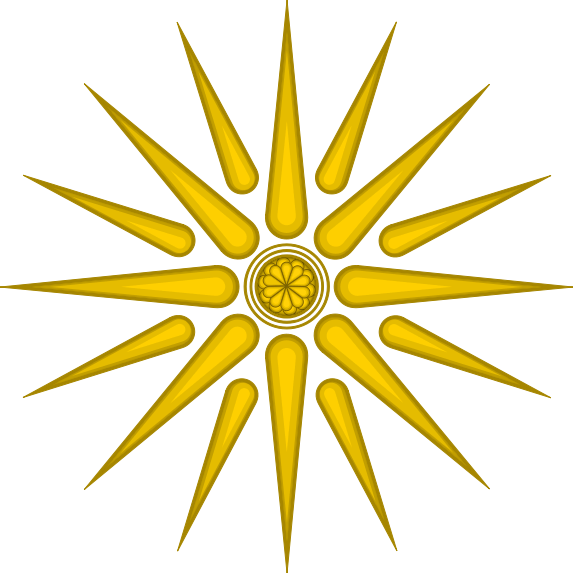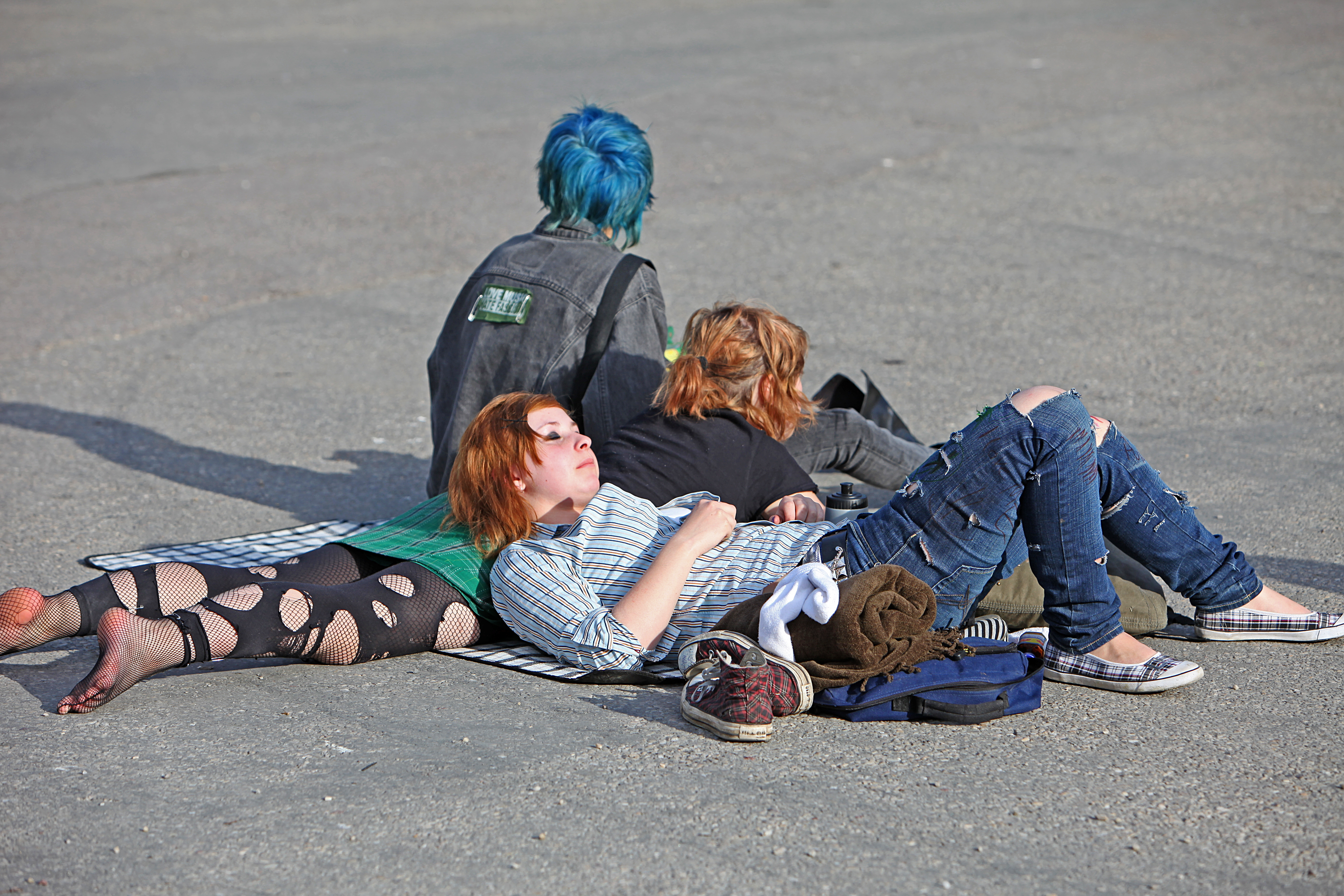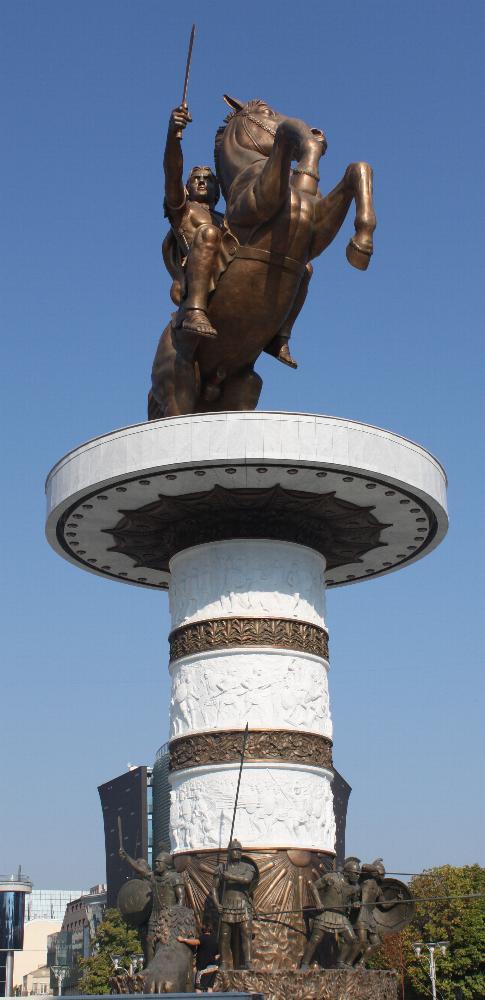|
2018 Macedonian Referendum
A referendum was held in the Republic of Macedonia on 30 September 2018, with voters asked whether they supported EU and NATO membership by accepting the Prespa agreement between Macedonia and Greece, signed in June 2018, which aimed to settle the 27-year naming dispute, which had prevented Macedonia from joining both the European Union and NATO. Despite 94% of voters voting in favour, voter turnout was around 37%, less than the 50% threshold required to validate the results. Both the opposition and government claimed victory, with the opposition claiming that the proposal had been rejected by virtue of the low turnout and the government argued that the result being non-binding meant the turnout requirement was irrelevant. As the referendum was non-binding and included constitutional changes, it also had to be ratified by two-thirds of the Assembly of the Republic. Macedonian Prime Minister Zoran Zaev vowed to push forward with the changes in the Assembly, which was achieved ... [...More Info...] [...Related Items...] OR: [Wikipedia] [Google] [Baidu] |
Municipalities Of North Macedonia
The municipalities are the first-order administrative divisions of North Macedonia. North Macedonia is currently organized into 80 municipalities ( mk, општини, ''opštini''; singular: општина, ''opština,'' Albanian: ''komunat''; singular: ''komuna''), established in February 2013; 10 of the municipalities constitute the City of Skopje (or Greater Skopje), a distinct unit of local self-governance and the country's capital. Most of the current municipalities were unaltered or merely amalgamated from the previous 123 municipalities established in September 1996; others were consolidated and their borders changed. Prior to this, local government was organized into 34 administrative districts, communes, or counties (also ''opštini''). In 2004 they were reduced to 84, and in 2013, the following municipalities were merged into the Kičevo Municipality: Drugovo, Zajas, Oslomej and Vraneštica. In turn, North Macedonia is subdivided into eight statistical regions ( ... [...More Info...] [...Related Items...] OR: [Wikipedia] [Google] [Baidu] |
Prime Minister Of Greece
The prime minister of the Hellenic Republic ( el, Πρωθυπουργός της Ελληνικής Δημοκρατίας, Prothypourgós tis Ellinikís Dimokratías), colloquially referred to as the prime minister of Greece ( el, Πρωθυπουργός της Ελλάδας, Prothypourgós tis Elládas), is the head of government The head of government is the highest or the second-highest official in the executive branch of a sovereign state, a federated state, or a self-governing colony, autonomous region, or other government who often presides over a cabinet, ... of the Hellenic Republic and the leader of the Greek Cabinet. The incumbent prime minister is Kyriakos Mitsotakis, who took office on 8 July 2019 from Alexis Tsipras. The officeholder's official seat (but not residence) is the Maximos Mansion in the centre of Athens. The office is described in the Constitution either as Prime Minister or President of the Government (Πρόεδρος της Κυ ... [...More Info...] [...Related Items...] OR: [Wikipedia] [Google] [Baidu] |
Lake Prespa
The Lake Prespa is located on the tripoint of North Macedonia, Albania, and Greece. It is a system of two lakes separated by an isthmus: the Great Prespa Lake, divided between the three countries, and the Little Prespa Lake, mostly within Greece. They are the highest tectonic lakes in the Balkans, standing at an elevation of . The area contains three national parks: Prespa in Albania, Galičica in North Macedonia and Prespa in Greece. The largest town in the region is Resen in North Macedonia. In 2014, the Ohrid-Prespa Transboundary Reserve between Albania and North Macedonia was added to UNESCO's World Network of Biosphere Reserves. Geography The Great Prespa Lake ( mk, Преспанско Езеро, ''Prespansko Ezero'', sq, Liqeni i Prespës së Madhe, el, Μεγάλη Πρέσπα, ''Megáli Préspa'') has the total surface of . The largest part of it, belongs to North Macedonia; to Albania; and to Greece. To the south, the Little Prespa Lake (Greek: Μικρ� ... [...More Info...] [...Related Items...] OR: [Wikipedia] [Google] [Baidu] |
Council Of Europe
The Council of Europe (CoE; french: Conseil de l'Europe, ) is an international organisation founded in the wake of World War II to uphold human rights, democracy and the rule of law in Europe. Founded in 1949, it has 46 member states, with a population of approximately 675 million; it operates with an annual budget of approximately 500 million euros. The organisation is distinct from the European Union (EU), although it is sometimes confused with it, partly because the EU has adopted the original European flag, created for the Council of Europe in 1955, as well as the European anthem. No country has ever joined the EU without first belonging to the Council of Europe. The Council of Europe is an official United Nations Observer. Being an international organization, the Council of Europe cannot make laws, but it does have the ability to push for the enforcement of select international agreements reached by member states on various topics. The best-known body of the Counci ... [...More Info...] [...Related Items...] OR: [Wikipedia] [Google] [Baidu] |
UNESCO
The United Nations Educational, Scientific and Cultural Organization is a specialized agency of the United Nations (UN) aimed at promoting world peace and security through international cooperation in education, arts, sciences and culture. It has 193 member states and 12 associate members, as well as partners in the non-governmental, intergovernmental and private sector. Headquartered at the World Heritage Centre in Paris, France, UNESCO has 53 regional field offices and 199 national commissions that facilitate its global mandate. UNESCO was founded in 1945 as the successor to the League of Nations's International Committee on Intellectual Cooperation.English summary). Its constitution establishes the agency's goals, governing structure, and operating framework. UNESCO's founding mission, which was shaped by the Second World War, is to advance peace, sustainable development and human rights by facilitating collaboration and dialogue among nations. It pursues this objec ... [...More Info...] [...Related Items...] OR: [Wikipedia] [Google] [Baidu] |
Vergina Sun
The Vergina Sun ( el, Ήλιος της Βεργίνας, Ilios tis Vergínas, Sun of Vergina), also known as the Star of Vergina, Vergina Star or Argead Star, is a rayed solar symbol first appearing in ancient Greek art of the period between the 6th and 2nd centuries BC. The Vergina Sun proper has sixteen triangular rays, while comparable symbols of the same period variously have sixteen, twelve, eight or (rarely) six rays. The name "Vergina Sun" became widely used after the archaeological excavations in and around the small town of Vergina, in northern Greece, during the late 1970s. In older references, the name "Argead Star" or "Star of the Argeadai" is used for the Sun as the possible royal symbol of the Argead dynasty of the ancient kingdom of Macedonia. There it was depicted on a golden larnax found in a 4th-century BC royal tomb belonging to either Philip II or Philip III of Macedon, the father and half-brother of Alexander the Great, respectively. Tentatively inte ... [...More Info...] [...Related Items...] OR: [Wikipedia] [Google] [Baidu] |
Cultural Identity
Cultural identity is a part of a person's identity, or their self-conception and self-perception, and is related to nationality, ethnicity, religion, social class, generation, locality or any kind of social group that has its own distinct culture. In this way, cultural identity is both characteristic of the individual but also of the culturally identical group of members sharing the same cultural identity or upbringing. Cultural identity is a fluid process that is changed by different social, cultural, and historical experiences. Some people undergo more cultural identity changes as opposed to others, those who change less often have a clear cultural identity. This means that they have a dynamic yet stable integration of their culture. There are three pieces that make up a persons cultural identity, these are cultural knowledge, category label, and social connections. Cultural knowledge is when a person connects to their identity through understanding their culture's core ch ... [...More Info...] [...Related Items...] OR: [Wikipedia] [Google] [Baidu] |
Macedonians (ethnic Group)
Macedonians ( mk, Македонци, Makedonci) are a nation and a South Slavic ethnic group native to the region of Macedonia in Southeast Europe. They speak Macedonian, a South Slavic language. The large majority of Macedonians identify as Eastern Orthodox Christians, who speak a South Slavic language, and share a cultural and historical "Orthodox Byzantine–Slavic heritage" with their neighbours. About two-thirds of all ethnic Macedonians live in North Macedonia and there are also communities in a number of other countries. The concept of a Macedonian ethnicity, distinct from their Orthodox Balkan neighbours, is seen to be a comparatively newly emergent one. The earliest manifestations of an incipient Macedonian identity emerged during the second half of the 19th century among limited circles of Slavic-speaking intellectuals, predominantly outside the region of Macedonia. They arose after the First World War and especially during 1930s, and thus were consolidated by ... [...More Info...] [...Related Items...] OR: [Wikipedia] [Google] [Baidu] |
Macedonian Language
Macedonian (; , , ) is an Eastern South Slavic language. It is part of the Indo-European language family, and is one of the Slavic languages, which are part of a larger Balto-Slavic branch. Spoken as a first language by around two million people, it serves as the official language of North Macedonia. Most speakers can be found in the country and its diaspora, with a smaller number of speakers throughout the transnational region of Macedonia. Macedonian is also a recognized minority language in parts of Albania, Bosnia and Herzegovina, Romania, and Serbia and it is spoken by emigrant communities predominantly in Australia, Canada and the United States. Macedonian developed out of the western dialects of the East South Slavic dialect continuum, whose earliest recorded form is Old Church Slavonic. During much of its history, this dialect continuum was called "Bulgarian", although in the 19th century, its western dialects came to be known separately as "Macedonian". Sta ... [...More Info...] [...Related Items...] OR: [Wikipedia] [Google] [Baidu] |
Antiquisation
Antiquization ( mk, антиквизација), otherwise known as ancient Macedonism ( mk, links=no, антички македонизам), is a term used mainly to critically describe the identity policies conducted by the nationalist VMRO-DPMNE-led governments of North Macedonia in the period between 2006 and 2017. In the contemporary Macedonian discourse, antiquization refers to the identitarian policies based on the assumption that there is a direct link between today's ethnic Macedonians and Ancient Macedonians.Vangeli, Anastas (2011): Nation-building ancient Macedonian style: the origins and the effects of the so-called antiquization in Macedonia. In ''Nationalities Papers'' 39 (1), p. 13. The politics of the ex-Yugoslav era therefore not only embrace the revival of the ancient heritage of the Ancient Macedonians, including the heritage of Philip II and his son Alexander the Great, but also seek to depict a coherent continuity of history and descendancy from the ancien ... [...More Info...] [...Related Items...] OR: [Wikipedia] [Google] [Baidu] |
Switzerland
; rm, citad federala, links=no). Swiss law does not designate a ''capital'' as such, but the federal parliament and government are installed in Bern, while other federal institutions, such as the federal courts, are in other cities (Bellinzona, Lausanne, Lucerne, Neuchâtel, St. Gallen a.o.). , coordinates = , largest_city = Zurich , official_languages = , englishmotto = "One for all, all for one" , religion_year = 2022 , religion_ref = , religion = , demonym = , german: link=no, Schweizer/Schweizerin, french: link=no, Suisse/Suissesse, it, svizzero/svizzera or , rm, Svizzer/Svizra , government_type = Federal assembly-independent directorial republic , leader_title1 = Federal Council , leader_name1 = , leader_title2 = , leader_name2 = Viktor Rossi , legislature = Federal Assembly , upper_house = Counci ... [...More Info...] [...Related Items...] OR: [Wikipedia] [Google] [Baidu] |





